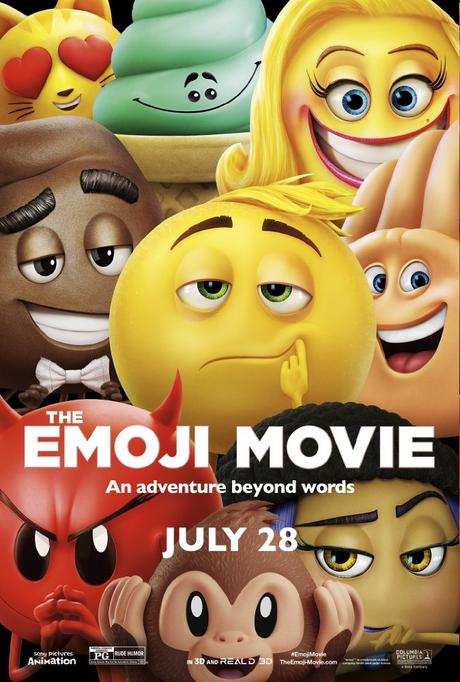Studios are trying to figure out some way to counter the ‘Rotten Tomatoes Effect’

The movement – nay, the RESISTANCE – started a few years ago. It started quietly at first, just a few quotes from a few directors and producers to the trade papers. The momentum quietly built up, and then well-heeled directors began to speak out. The hacktastic madmen at the helm of various bombs had to find some way of explaining why people don’t like their films, because it literally never dawns on them that they need to simply make better films. No, the root of all this angst was very simple: Rotten Tomatoes and the way they aggregate reviews from professional movie critics and assign a fresh/rotten score. THAT is the problem. And directors, studios and fan-boys are leading their own #Resistance. #ResistRottenTomatoes! The Hollywood Reporter has a new story about how bad films are adjusting their promotion to counter the Rotten Tomatoes Effect. It’s kind of funny, actually, especially given the recent RT issue with The Emoji Movie. Here’s part of the story:
The Emoji Movie’s $24.5 million domestic opening during the July 28 to 30 weekend accomplished what no other movie has been able to do during a tough summer season at the box office — survive an abysmal Rotten Tomatoes score (7 percent) and open in line with prerelease tracking. One possible secret weapon? Sony wouldn’t let reviews post until midday on July 27, hours before the pic began playing in previews before rolling out everywhere. Sony, like every studio, is looking for their own basket of rotten eggs to throw at review aggregator Rotten Tomatoes in hopes of combating a bad “Tomatometer” score. That means screening some titles later and later for critics
“What other wide release with a score under 8 percent has opened north of $20 million? I don’t think there is one,” says Josh Greenstein, Sony Pictures president of worldwide marketing and distribution. “The Emoji Movie was built for people under 18, so we wanted to give the movie its best chance.”
At a tipping point now, Rotten Tomatoes’ influence began to grow exponentially after it and parent company Flixster were acquired in February 2016 by leading movie ticketing website Fandango, a unit of Comcast’s NBCUniversal. (Warner Bros. holds a minority stake in the merged companies.) This summer, a slew of event films earning a rotten score were beached domestically — Baywatch (19 percent) and Transformers: The Last Knight (15 percent) among them — while tentpoles earning scores north of 90 percent did better than expected, including Wonder Woman, Spider-Man: Homecoming and Dunkirk. Studios — all too eager to advertise a good score, a practice that didn’t begin until summer 2016 — are now scrambling to understand what happens when their titles garner the infamous green splat.
[From THR]
THR goes on to explain that some theater chains and ticketing sites are trying to adjust how they feature RT’s scores – like, if RT has bestowed a “fresh” score, of course everyone is happy to use it in the promotion. But if the RT is appallingly low, now studios want to make sure the RT score isn’t featured by any theater chain or ticketing site. THR also notes this:
Hollywood studios have commissioned a number of studies on the subject in recent months. Nielsen Research Group found that seven out of 10 people said they would be less interested in seeing a movie if the Rotten Tomatoes score was 0 to 25. And social media research firm Fizziology, which tracks every major Hollywood release, discovered that a Rotten Tomatoes score has the most influence on moviegoers 25 and younger.
“The Tomatometer has evolved into a truth serum of sorts to help moviegoers decode whether the promise of the campaign lives up to the reality of the film,” says Nielsen Research Group CEO Jon Penn. Adds Fizziology president Ben Carlson, “Things have reached a crescendo this summer. We see entire audience segments talking about a movie for months and then, all of a sudden, the conversation completely dries up and goes away when the Rotten Tomatoes score comes out. People are using the score as a pass/fail. Hollywood has always talked about a movie being “review proof.” But it may not be Rotten Tomatoes proof.”
[From THR]
THEY ARE COMMISSIONING STUDIES. It does not occur to these studios that they just need to make better movies!! So, the studio’s makeshift strategy to deal with the Rotten Tomatoes Effect is that when the studio knows they’re about to release a terrible movie, they’re just going to embargo reviews until the very last minute. They’re doing that with The Dark Tower this week, so now that becomes the latest harbinger of doom: if a studio has embargoed reviews until the last minute, you know the film sucks.
Photos courtesy of IMDB. WB.
Source: Studios are trying to figure out some way to counter the ‘Rotten Tomatoes Effect’
2 total views, 2 views today
